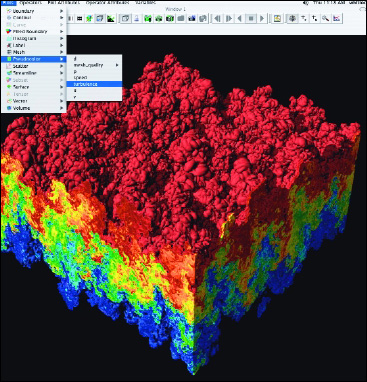Ogmius Exchange
Introduction
 Debate has heated up lately over the predictive capabilities of climate models and the implications for action on climate change. As Roger Pielke, Jr. noted in a recent commentary (Excerpt from Pielke, Jr. 2008. “Overheated Claims” Financial Post online): “Whether one is faced with evacuating from a possible hurricane landfall or investing in a mutual fund, decision-making is improved when uncertainties are readily understood. On the highly politicized issue of climate change, however, understanding uncertainties is made difficult when scientists advocating for action oversell the predictive capabilities of climate models, such as those of the United Nations Intergovernmental Panel on Climate Change (IPCC).” Advocates for action on climate change maintain that current extreme weather events are “consistent with” climate model projections, while critics point out that temperature trends of the past decade have disproved climate models.
Debate has heated up lately over the predictive capabilities of climate models and the implications for action on climate change. As Roger Pielke, Jr. noted in a recent commentary (Excerpt from Pielke, Jr. 2008. “Overheated Claims” Financial Post online): “Whether one is faced with evacuating from a possible hurricane landfall or investing in a mutual fund, decision-making is improved when uncertainties are readily understood. On the highly politicized issue of climate change, however, understanding uncertainties is made difficult when scientists advocating for action oversell the predictive capabilities of climate models, such as those of the United Nations Intergovernmental Panel on Climate Change (IPCC).” Advocates for action on climate change maintain that current extreme weather events are “consistent with” climate model projections, while critics point out that temperature trends of the past decade have disproved climate models.
We explore this debate more fully in this issue of Ogmius. Are the predictive capabilities of models oversold? Are models useful, and how so? Can they inform decision-making? Thomas Chase of the University of Colorado offers a critique of the skill of current climate models and suggests caution. Kevin Trenberth of the National Center for Atmospheric Research and Mike Hulme of the Tyndall Centre for Climate Change Research respond to Tom Chase’s article by offering their perspectives on the usefulness of models. As Mike Hulme notes, part of the problem is because “the IPCC has – inadvertently perhaps - elevated the political significance of climate model performance to a new level.” Roger Pielke Jr. wraps up the exchange with a few closing thoughts. Comments welcome! admin@sciencepolicy.colorado.edu.
Continue to read Part I: A caution to policy makers: Climate models fail key tests for accuracy by Tom Chase

